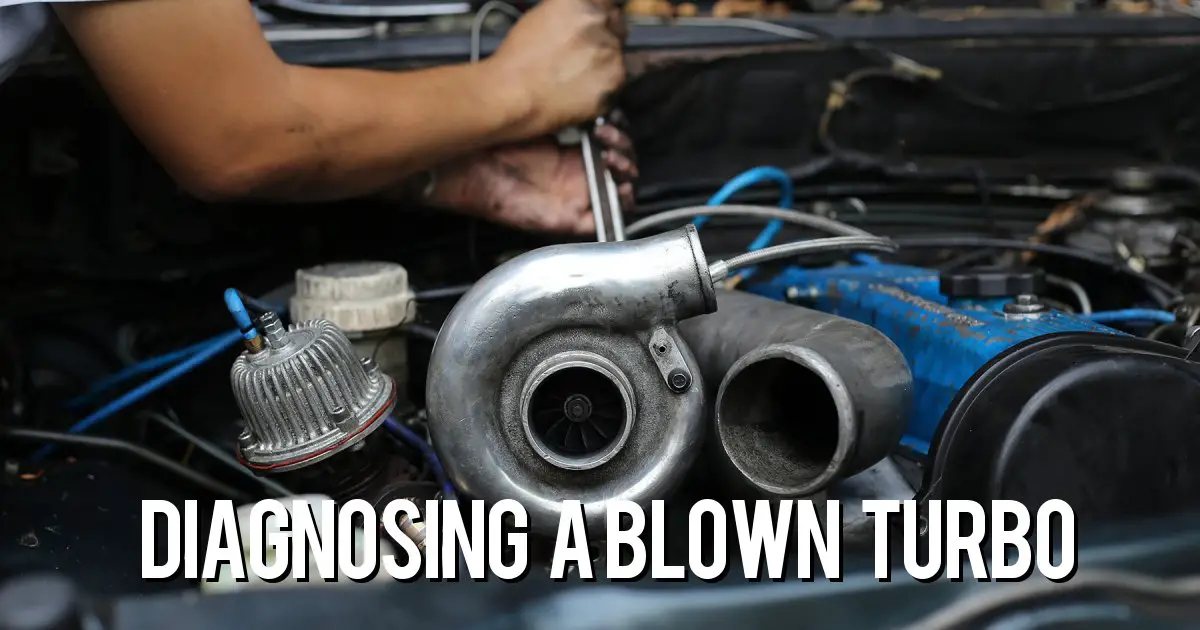Symptoms of a Bad Turbo on a Diesel
When it comes to diesel engines, the turbocharger plays a crucial role in enhancing performance and efficiency. However, like all components, turbos can fail over time, leading to a range of issues that can impact the overall performance of the engine. In this article, we’ll explore the symptoms of a bad turbo on a diesel engine and how to identify potential problems before they escalate.
Understanding the Turbocharger
Before delving into the symptoms of a bad turbo, it’s important to have a basic understanding of how a turbocharger works. A turbocharger is a forced induction system that compresses the air entering the diesel engine. This compressed air allows the engine to burn more fuel and air, thus improving overall performance and efficiency. A turbine connected to the exhaust system drives a compressor, which in turn compresses the incoming air and delivers it to the engine. This process is what gives diesel engines their characteristic power and fuel efficiency.
Symptoms of a Bad Turbo on a Diesel Engine
There are several telltale signs that indicate a potential issue with the turbocharger on a diesel engine. Here are some common symptoms to look out for:
1. Loss Of Power
One of the most noticeable symptoms of a bad turbo on a diesel engine is a significant loss of power. If you find that your vehicle is struggling to accelerate or is taking longer to reach high speeds, it could be a sign that the turbocharger is not functioning properly. This loss of power can be especially noticeable when climbing hills or towing heavy loads.
2. Excessive Exhaust Smoke
Another common symptom of a failing turbo is the presence of excessive exhaust smoke. If you notice that your diesel vehicle is emitting an unusual amount of black or blue smoke from the exhaust, it could indicate that the turbocharger is leaking oil into the engine’s intake system. This can lead to a range of performance issues and should be addressed promptly.
3. Increased Engine Noise
A bad turbo can also cause an increase in engine noise, particularly a high-pitched whining sound. This noise may be most noticeable during acceleration or when the engine is under load. It is often an indicator of a malfunctioning turbocharger and should be investigated by a qualified mechanic.
4. Loss Of Fuel Efficiency
If you observe a sudden decrease in fuel efficiency, it could be attributed to a bad turbo on your diesel engine. Since the turbocharger plays a key role in optimizing fuel combustion, a malfunctioning turbo can cause the engine to burn more fuel than usual, leading to decreased miles per gallon.
5. Check Engine Light
Many modern diesel vehicles are equipped with onboard diagnostic systems that monitor the performance of various engine components. If the turbocharger is not functioning as it should, the vehicle’s computer may trigger the check engine light to alert the driver of a potential issue. It’s important to have the vehicle scanned for error codes to pinpoint the exact cause of the problem.
Addressing Turbocharger Issues
If you suspect that your diesel engine’s turbocharger is exhibiting any of the aforementioned symptoms, it is crucial to have the issue diagnosed and repaired by a qualified mechanic. Ignoring turbocharger issues can lead to further damage to the engine and other components, resulting in costly repairs.
A professional mechanic will conduct a thorough inspection of the turbocharger, intake and exhaust systems, and other related components to identify the root cause of the problem. Depending on the extent of the issue, the turbo may need to be repaired or replaced to restore the engine’s performance and efficiency.
Preventing Turbocharger Problems
While turbochargers are subject to wear and tear over time, there are several measures diesel engine owners can take to minimize the likelihood of turbocharger issues. Regular maintenance, including oil and filter changes, can help prevent the buildup of contaminants that can negatively impact turbocharger performance. Additionally, allowing the engine to warm up before putting it under heavy load and letting it cool down after driving can help extend the lifespan of the turbocharger.
Furthermore, adhering to the manufacturer’s recommended service intervals and using high-quality diesel fuel and engine oil can contribute to the longevity of the turbocharger and the overall health of the diesel engine.

Credit: q20.co.za
Frequently Asked Questions Of Symptoms Of A Bad Turbo On A Diesel
What Are The Common Signs Of A Failing Turbo In A Diesel Engine?
Common signs include decreased power, excessive exhaust smoke, and unusual engine noises.
Can A Bad Turbo Cause Engine Damage In A Diesel Vehicle?
Yes, a failing turbo can lead to engine damage due to oil leaks and overheating.
How Does A Bad Turbo Affect Fuel Efficiency In A Diesel Engine?
A bad turbo can reduce fuel efficiency by causing the engine to work harder.
What Is The Potential Cost Of Repairing A Bad Turbo In A Diesel Vehicle?
Repair costs can vary but may range from a few hundred to several thousand dollars.
Conclusion
Recognizing the symptoms of a bad turbo on a diesel engine is crucial for maintaining performance, efficiency, and longevity. By addressing turbocharger issues in a timely manner and adhering to preventative maintenance practices, diesel engine owners can ensure that their vehicles continue to operate at their best. If you suspect that your diesel engine’s turbocharger is exhibiting any of the symptoms mentioned in this article, it is recommended to seek professional diagnosis and repair to avoid further complications.


